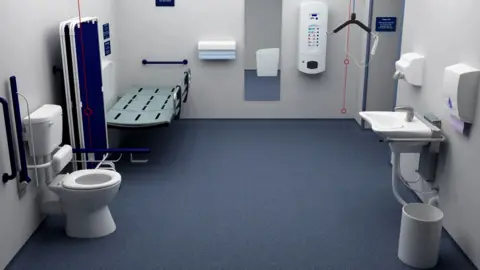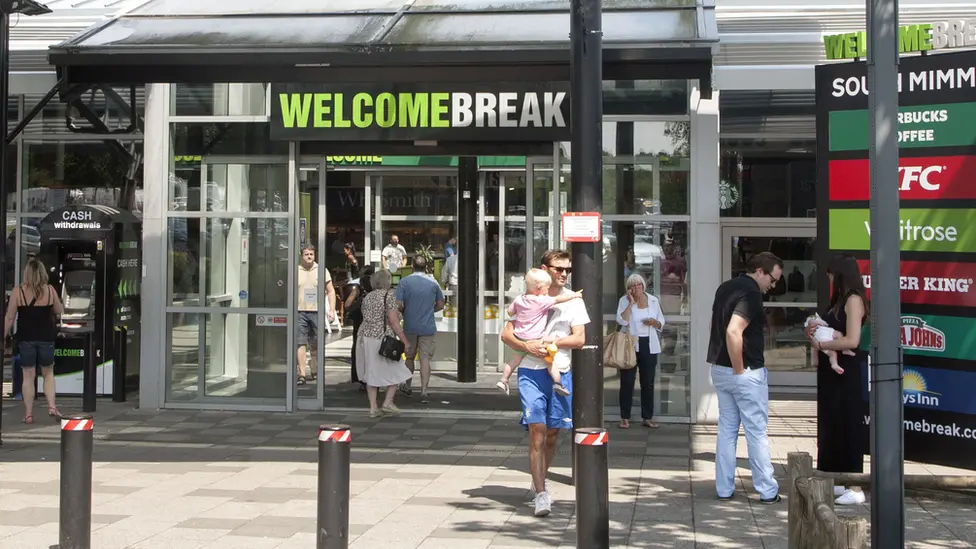Changing Places toilets for disabled people to be compulsory
 Closomat
ClosomatLarge accessible toilets for severely disabled people - known as Changing Places - will be made compulsory for new buildings in England from 2021.
Shopping centres, supermarkets, sports and arts venues will be required to include at least one Changing Place, a government spokesman said.
The facilities include hoists, changing benches and space for carers.
Campaigner Zack Kerr said the announcement was "nothing short of life changing".
A government spokesman said there were more than 1,400 Changing Places toilets in the UK, compared with 140 in 2007, but more were needed to support about 250,000 severely disabled people.
Many disabled people have spoken about restricting their drinking to avoid needing the toilet when they were out, risking dehydration and urinary tract infections.
Other issues include sitting in soiled clothing or dirty nappies until they find a suitable toilet or returned home, and carers having to change a disabled person on a dirty toilet floor.
Helen Whately, Minister for Care, said: "Compulsory Changing Places in new public buildings is a major step in reducing the health inequalities.
"All public spaces should cater for people with disabilities so they don't have to suffer discomfort, embarrassment, or even injury without access to a Changing Place."
The government's announcement will be a major change for building rules in England which now require Changing Places, which are at about 12 sq m, to be designed for new public buildings.
 Getty Images
Getty ImagesA £30m fund to install Changing Places in existing premises was also announced in March's Budget.
On Sunday, the Department for Transport and Muscular Dystrophy UK announced a £1.27m fund to install 37 more Changing Places at service stations across England.
It means 87 of England's 118 service stations will have the facilities in the next few years.
Zack Kerr, who has cerebral palsy, launched a campaign for more Changing Places after a "distressing" journey from his Lancashire home to south Wales three years ago.
"We stopped at three service stations on route along the M62, M6 and M5 but none of them had an accessible changing facility," he said.
Mr Kerr said when he started his service stations campaign "there were about 10 [Changing Places] in the whole country and none of them were north of Birmingham".
He said he was "especially pleased" there would be more facilities in northern England.
